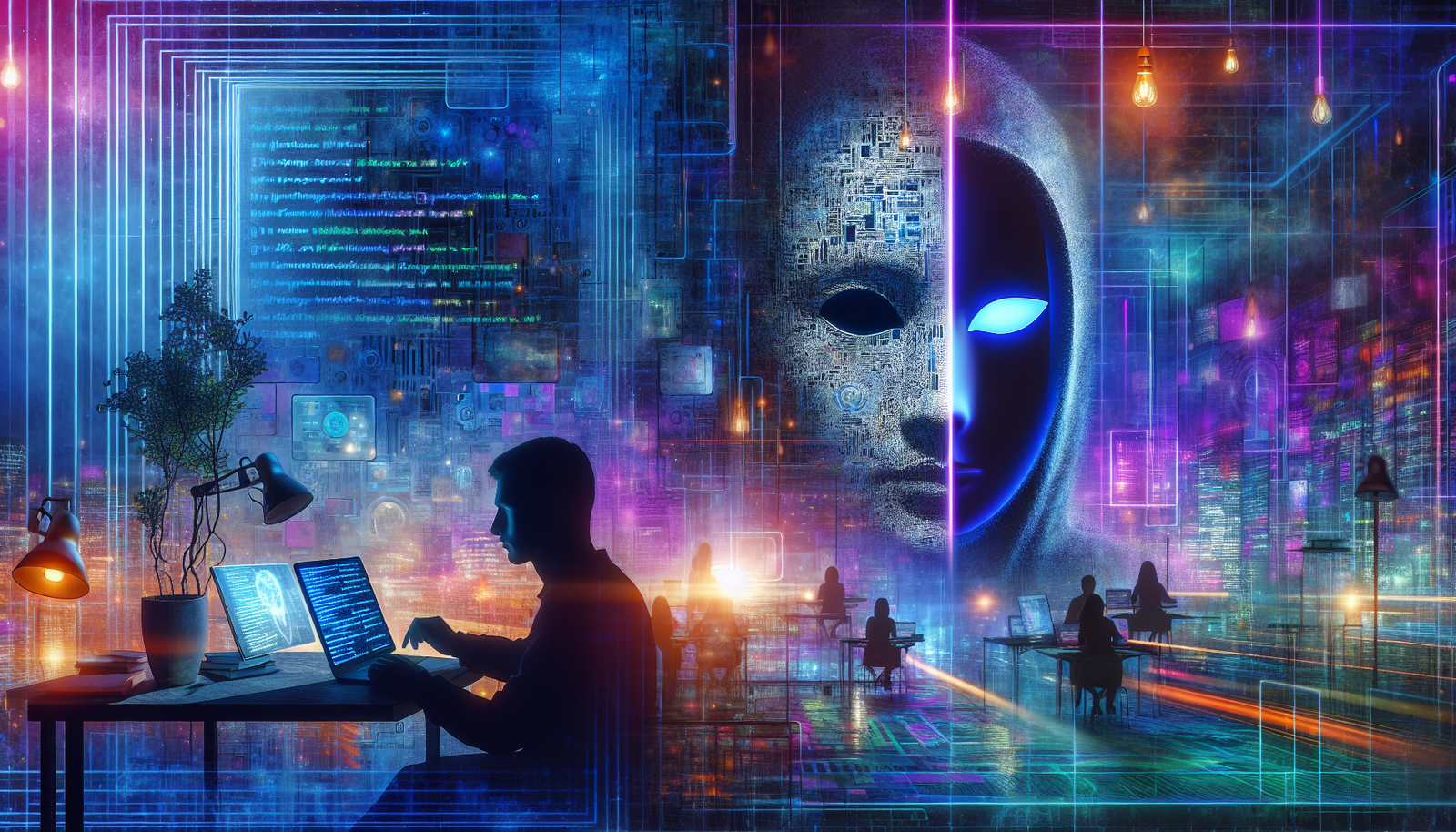DeepSeek, a Chinese start-up, is shaking the foundations of technological innovation by raising serious questions about the integrity of its methods. The creator of ChatGPT alleges that the firm may have exploited its *proprietary algorithmic models* to develop its own low-cost AI technology. The ramifications of these allegations go beyond simple plagiarism, affecting the landscape *of artificial intelligence geopolitics* and raising legitimate concerns about *intellectual property protection*.
Plagiarism Accusations Between DeepSeek and OpenAI
DeepSeek, a Chinese start-up, is under the spotlight after OpenAI unveiled accusations regarding the unauthorized use of its AI technologies. According to credible sources, OpenAI asserted that it had discovered evidence suggesting that DeepSeek may have exploited its proprietary algorithms to build its own artificial intelligence.
Potential Consequences of These Accusations
The situation raises concerns about intellectual property and the security of innovations. The artificial intelligence industry is particularly vulnerable to practices such as plagiarism, which can compromise the integrity of established companies. The plagiarism accusations could impact trust between businesses and investors.
Statements from OpenAI
OpenAI recently communicated with the Financial Times, insisting that substantial evidence demonstrates the mishandling of its technologies. The company clarified that the way DeepSeek designed its applications raises ethical questions regarding the current practices in AI. Such actions, if confirmed, could seriously damage DeepSeek’s reputation on the global stage.
Reactions from the Tech Community
Reactions within the tech community are varied. Digital ethics experts warn against the dangers of such plagiarism, which could upset the geopolitical balance in the artificial intelligence sector. The start-up DeepSeek has already drawn attention for its ability to provide performances equivalent to those of OpenAI at a lower cost. This dynamic heightens fears of knowledge theft.
Geopolitical Implications
Tensions between the United States and China could also flare up following this matter. Influential figures, such as David Sacks, advisor to the White House, have expressed reservations about DeepSeek’s business practices. Concern is growing about a possible violation of trade secrecy and a lack of transparency regarding their development methods.
Impact on the AI Sector
This schism between OpenAI and DeepSeek could lead to a reevaluation of competitive strategies in the field of artificial intelligence. The repercussions go beyond mere accusations; they raise a debate about the responsible creation and distribution of advanced technologies. As the battle for industrial supremacy rages on, plagiarism could fuel existing tensions between various superpowers.
Next Steps for OpenAI and DeepSeek
OpenAI plans to pursue legal avenues to assert its rights, while DeepSeek is preparing its defense against these accusations. The situation could also lead to a revision of AI protection regulations, aimed at preventing such incidents in the future. Industry observers are scrutinizing every move, aware that important decisions will be made in the near future.
Perspectives on AI Regulation
Global authorities must now consider regulations that clearly define the limits of using AI technologies. The DeepSeek affair could serve as a catalyst to establish standards to follow in the field. The stakes go beyond competitive frameworks, touching upon technological sovereignty and fundamental ethical questions.
Challenges for the Future of Research
The development of AI relies on open access to research, but these incidents raise questions about how information can be used. Increased transparency is crucial to ensure a sustainable innovation environment. Companies must commit to adhering to responsible development practices to build trust with consumers and partners.
Related Topics to Monitor
Recent cases in other technology fields, such as publishing and video games, show that similar dilemmas are emerging. The conflicts related to AI in the media and claims of plagiarism in universities could influence ongoing debates on AI. The situation with DeepSeek requires increased vigilance and constant monitoring of developments.
Tools like tailored verification systems for AI will become increasingly necessary to establish the legitimacy of innovations. The discussion around the ethics of AI creation is still in its infancy but promises to be a hot topic.
Frequently Asked Questions about AI Technology Plagiarism Between DeepSeek and OpenAI
What is the plagiarism accusation against DeepSeek by OpenAI?
OpenAI accuses DeepSeek of having used its algorithm models without authorization to develop its own artificial intelligence technology, thereby compromising the intellectual property of the American company.
What evidence has OpenAI presented?
OpenAI stated that it has identified substantial evidence suggesting that DeepSeek has incorporated knowledge and data from its proprietary models to train its own AI system.
What is DeepSeek’s reaction to these accusations?
No official statement has been made by DeepSeek regarding the plagiarism accusations, but the start-up continues to promote its technologies as innovative and independent.
Are plagiarism accusations common in the AI sector?
Yes, accusations of plagiarism or unauthorized use of technologies are relatively common in the artificial intelligence sector, as companies seek to protect their innovations and maintain a competitive edge.
What would be the legal consequences of proven plagiarism?
If DeepSeek is found guilty of plagiarism, it could lead to financial penalties, bans on using its technology, and damage to its reputation in the market.
How can AI companies protect their intellectual property?
AI companies protect their intellectual property through patents, confidentiality agreements, and strict internal policies for the use and development of data.
Is there a geopolitical impact related to this case between DeepSeek and OpenAI?
Yes, this case raises concerns about technological and commercial tensions between the United States and China, heightening debates on national security and intellectual property.
What is the status of the investigation conducted by OpenAI regarding these practices?
OpenAI has stated that an investigation is underway to examine the usage practices of DeepSeek’s technologies and to determine the validity of the plagiarism accusations.
Should AI users be concerned about the implications of this case?
Yes, AI users should remain vigilant regarding intellectual property issues, as this could influence the quality and trust in the AI technologies available on the market.






